Natural Blood Thinners: Benefits, Risks, and Precautions
By Dr. Shubham Pandey +2 more

Get,

to manage your symptom
Get your,


4 Cr+ families
benefitted

OTP sent to 9988776655



You’ve successfully subscribed to receive
doctor-approved tips on
Whatsapp

Get ready to feel your best.

Hi There,
Download the PharmEasy App now!!


Register to Avail the Offer
Send OTPBy continuing, you agree with our Privacy Policy and Terms and Conditions

Hi There,
Sign up on PharmEasy now!!
Trusted by 4 crore+ families

OTP sent to 9988776655



You have unlocked 25% off on medicines




Code: NU25
By Dr. Shubham Pandey +2 more
Table of Contents
Blood thinners are key for managing health issues linked to blood clot formation. They help avoid severe problems like deep vein thrombosis, stroke, and heart attack. However, people are always looking out for more natural and risk-free methods that help in tackling their health conditions, and there are certain remedies out there that are said to act as natural blood thinners too. We’ll discuss the benefits and downsides of these natural blood thinners, and also their possible interaction with other drugs. But keep in mind to always enquire with your healthcare provider before using any natural alternative.
Blood thinners are nothing but anticoagulants and antiplatelet drugs. These drugs keep blood clots from forming, which can cause heart attacks, strokes, and other perilous situations in those who are at risk of forming these clots. So, before we step into the world of natural alternatives, let’s see how these medications function. Below, we have discussed how blood thinners work.
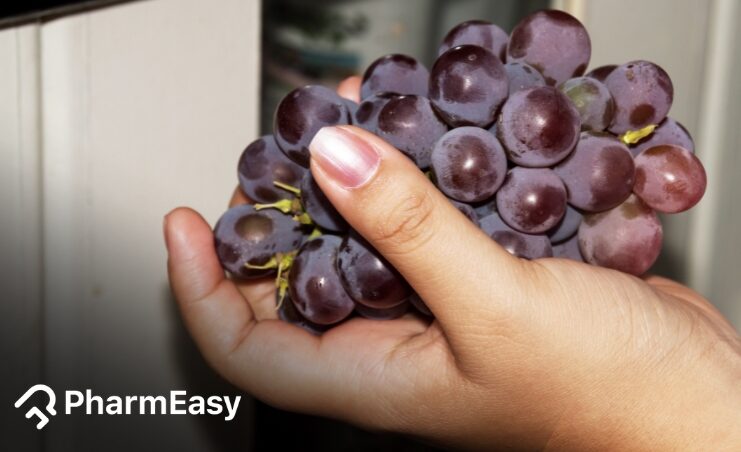
There are two main types of blood thinners: anticoagulants and antiplatelets.
Both help blood flow smoothly through the body. Because of this, blood thinners can help reduce the risk of heart attack and stroke. They do this by making blood clot formation less likely1.
Blood thinners can interact with other medications, supplements, or some foods types. This can lead to unwanted things like a higher risk or less effect of the blood thinner. Always check with your healthcare provider about what you’re eating and taking along with blood thinners.
Certain natural items have shown possible blood-thinning traits. But caution must be taken to never replace prescribed blood thinners with natural items. Also, don’t take them without asking your healthcare provider. Below, we have listed the natural items with proposed blood-thinning properties.
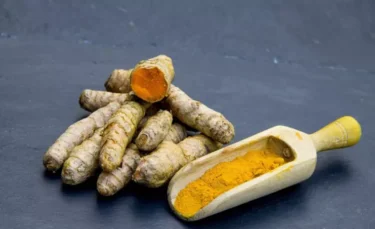
Turmeric is a yellow spice used a lot in Asian food. It’s known for many potential healing traits, especially due to its curcumin content. Curcumin is the main active part of turmeric. Various studies2 have shown that it acts as an anticoagulant. It does that by inhibiting certain clotting factors and stopping abnormal blood clots from forming.
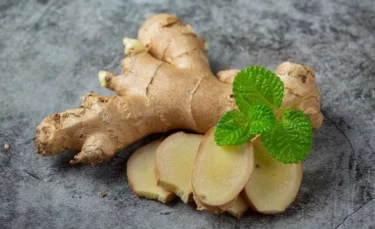
Ginger is a root related to turmeric. It contains salicylate, a natural chemical that acts like aspirin and helps reduce the risk of blood clotting3. Also, ginger has something called gingerols. These show antiplatelet and anticoagulant effects in some research4.
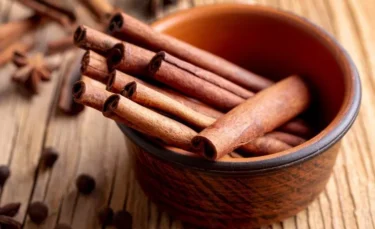
Cinnamon contains a chemical called coumarin, which is known for its anticoagulant (blood-thinning) properties5.
There are two key types of cinnamon: Cassia and Ceylon. The first one has plenty of coumarin while the second does not. So, if you want it for its blood-thinning traits, pick Cassia over Ceylon.
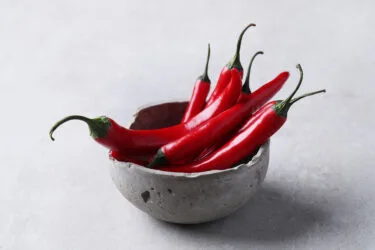
Cayenne peppers are rich in salicylates, which give them natural blood-thinning properties3. They may also help in reducing blood pressure and stopping clotting. Capsaicin present gives cayenne peppers their spicy taste. It is proposed to have blood-thinning traits. It may promote circulation and reduce blood clotting3.
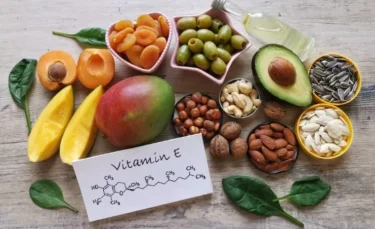
Vitamin E has strong antioxidant qualities. It is proposed to act as a mild anticoagulant. Research7 suggests that vitamin E may stop platelet aggregation and help fibrinolysis. These outcomes avoid blood clot creation.
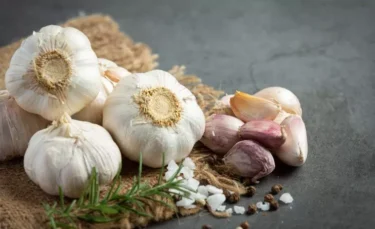
Garlic is an ingredient used worldwide. It is said to possess mild antiplatelet traits8. It contains a natural substance called allicin, which may stop blood cells (platelets) from sticking together8. This may reduce the odds of clot formation.
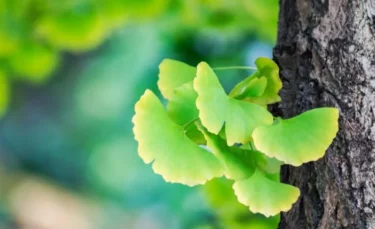
Ginkgo biloba is a Chinese plant and an often-used herbal pill, that may have effects on blood circulation. Research9 suggests that ginkgo biloba may help stop blood cells (platelets) from clumping together. This means it might work like a natural blood thinner and help improve blood flow in the body.
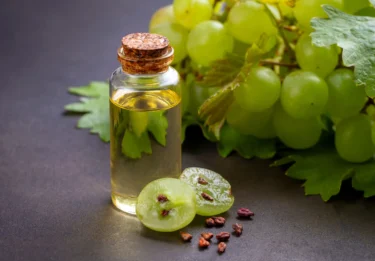
Grape seed extract is known for its potential antioxidant traits. It may act as a natural blood thinner10. Grape seed extract has antioxidants, which help protect your body’s cells from damage11. This damage can lead to heart problems.
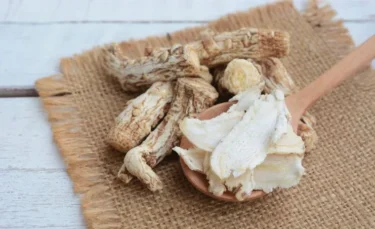
Dong quai, a Chinese herb, is proposed to have mild blood-thinning abilities. Dong quai, or “female ginseng,” was used as a blood tonic in Chinese medicine. It has coumarin, known to have anticoagulant ( anti-clotting) traits12, 22.
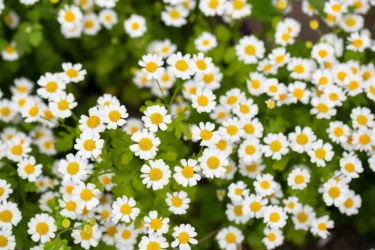
Feverfew, coming from the daisy family, is proposed to show mild antiplatelet qualities. Feverfew is said to prevent platelet aggregation and clotting13, 14.
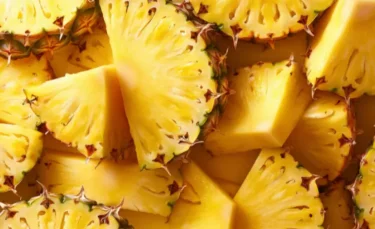
Bromelain, sourced from pineapple, may have blood-thinning abilities16. Studies15 show that bromelain may reduce the risk of clot formation by hindering blood clotting protein production.
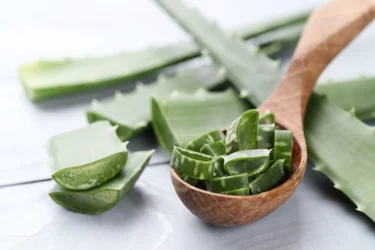
Aloe vera holds many potential health benefits, including small blood-thinning ones. Aloe vera contains salicylates, like ginger and cayenne pepper. These chemicals in aloe vera may mildly act as anticoagulants and reduce blood clot formation17.
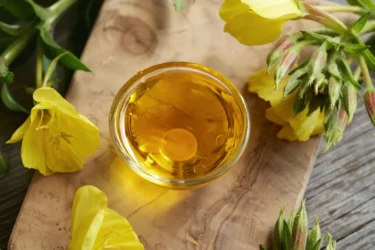
Evening primrose oil, a herbal pill, is said to possess slight blood-thinning effects. Studies24 say that evening primrose oil may stop blood clotting. It doesn’t allow platelet grouping.
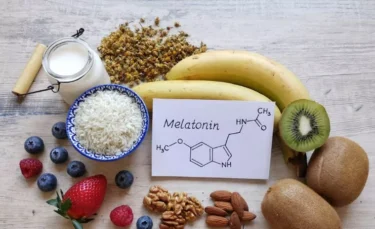
Melatonin, a sleep-regulating hormone produced by the body, is proposed to reduce blood clots with its antiplatelet effects. Research18, 19 suggests that melatonin may have mild anticoagulant traits. It stops platelet grouping and helps with overall blood circulation.
Although the above-mentioned natural products have shown blood-thinning properties in studies, more large-scale human research is needed to confirm these.
Also, never stop or taper your medication by yourself when planning to include any of these remedies. Always discuss with your healthcare provider before initiation, as they could suggest best whether or not you would need to continue with your medication when using these products and at what dose.
Vitamin K-rich food may interact with some blood-thinning medicines as vitamin K is needed by the liver to produce proteins called clotting factors (II, VII, IX, and X), without which blood cannot form clots20. These foods may reduce the actions of blood thinners.
Green vegetables like kale, spinach, and collard greens contain a lot of vitamin K20.
Some fruits, like avocados, kiwis, and blackberries, have good amounts of vitamin K too20.
Recently I read about bilberry, a berry similar to blueberries that has substances called anthocyanins that can stop blood from clotting too much and prevent platelets from sticking together21. This may also help lower the chance of blood clots forming and reduce the risk of heart problems.
Dr. Rajeev Singh, BAMS
Using natural blood thinners along with prescribed ones needs close watch by a healthcare provider. Only this can ensure a safe yet powerful management plan that answers any possible interactions between medications and the natural choices explored in this article.
Regular tests and check-ups of blood to find out the blood clotting, bleeding time, thrombin time, prothrombin time, activated partial thromboplastin time, fibrinogen test, and CBC can help decide the best course. They also show any necessary changes needed in the management plan.
Your healthcare provider may suggest changes to your diet or medicines, depending on the blood-thinning effects of natural options and their interactions with prescribed blood thinners.
Also Read: Top Benefits of Taking Multivitamin Capsules
Natural blood thinners like turmeric, ginger, and cinnamon may offer possible health benefits. Viewing them as an additional support for heart health is great. But, only relying on these may not give you ample protection like prescribed blood thinners. Blood thinner medicines have been studied widely for their effects based on dosage and strength, while there is no guideline to understand the effect of natural blood thinners consumed as food or supplements. Hence, it is vital to always ask your healthcare provider before considering natural blood thinners for your management plan. They need to go well with your prescribed medicines, and there must be no negative interactions. By teaming up closely with your doctor we can create a safe and useful plan.
While on blood thinners, it’s crucial to avoid activities that increase the risk of bleeding, such as heavy lifting or contact sports. Additionally, refrain from consuming excessive amounts of alcohol and be cautious with sharp objects to prevent injuries that may lead to bleeding complications.
Blood thinners do not directly lower blood pressure. They primarily help prevent blood clot formation and reduce the risk of stroke or heart attack by interfering with the clotting process. However, some medications used as blood thinners may have indirect effects on blood pressure through their interactions with other medications or physiological processes.
Blood thinners themselves do not directly cause a feeling of coldness. However, some individuals may experience increased sensitivity to cold due to the effects of blood thinners on circulation, which can lead to a perception of feeling colder than usual. It’s essential to consult a healthcare professional if experiencing any unusual symptoms while on blood thinners.
Blood thinners themselves typically do not directly cause fatigue. However, some individuals may experience fatigue as a side effect of certain blood-thinning medications or due to underlying health conditions for which blood thinners are prescribed. It’s essential to discuss any unusual symptoms with a healthcare provider to determine the cause and appropriate management
Drinking alcohol while on blood thinners can increase the risk of bleeding and other complications. It’s advisable to limit alcohol consumption and consult a healthcare provider for personalized guidance based on individual medical history and the specific blood thinner being taken.
Missing a dose of blood thinners can increase the risk of blood clot formation and related complications, such as stroke or heart attack. It’s crucial to follow the prescribed dosing schedule closely and consult a healthcare provider immediately for guidance if a dose is missed, to determine if a makeup dose is necessary, and to avoid potential risks.
Some essential oils that are believed to have mild blood-thinning properties include clove, cinnamon, eucalyptus, and ginger oil. However, their effects are not as potent or consistent as pharmaceutical blood thinners, and it’s important to consult with a healthcare provider before using essential oils for this purpose, especially if you are on other medications.
Yes, it is possible to have a natural birth while on blood thinners, but it requires careful management and coordination with healthcare providers. Adjustments to the medication regimen may be necessary to balance the mother’s health and reduce the risk of bleeding complications during delivery. It’s crucial to work closely with a healthcare team to ensure a safe birthing process.
Blueberries contain compounds like flavonoids and antioxidants that can improve blood circulation and potentially have mild blood-thinning effects. However, their anticoagulant properties are not strong enough to replace prescribed blood thinners. It’s important to consult with a healthcare provider before making any changes to your diet or medication regimen.
Yes, onions contain compounds such as quercetin and sulfur, which have mild blood-thinning properties and can help reduce the risk of blood clot formation. However, while onions can contribute to overall cardiovascular health, they are not a substitute for prescribed blood thinners and should be used as part of a balanced diet. Always consult with a healthcare provider before making significant changes to your diet or medication.
Teas such as green tea, ginger tea, and turmeric tea are known for their mild blood-thinning properties due to their antioxidant and anti-inflammatory compounds. However, their effects are not as strong as prescription blood thinners, so it’s important to consult a healthcare provider before relying on them for anticoagulation.
Blood thinners can be harmful if not used properly, as they increase the risk of bleeding and bruising. Potential side effects include internal bleeding, gastrointestinal issues, and interactions with other medications. It’s essential to use them under the guidance of a healthcare provider to minimize risks and ensure safe and effective treatment.
Disclaimer: The information provided here is for educational/awareness purposes only and is not intended to be a substitute for medical treatment by a healthcare professional and should not be relied upon to diagnose or treat any medical condition. The reader should consult a registered medical practitioner to determine the appropriateness of the information and before consuming any medication. PharmEasy does not provide any guarantee or warranty (express or implied) regarding the accuracy, adequacy, completeness, legality, reliability or usefulness of the information; and disclaims any liability arising thereof.
Comments

Leave your comment...
You may also like
Comments